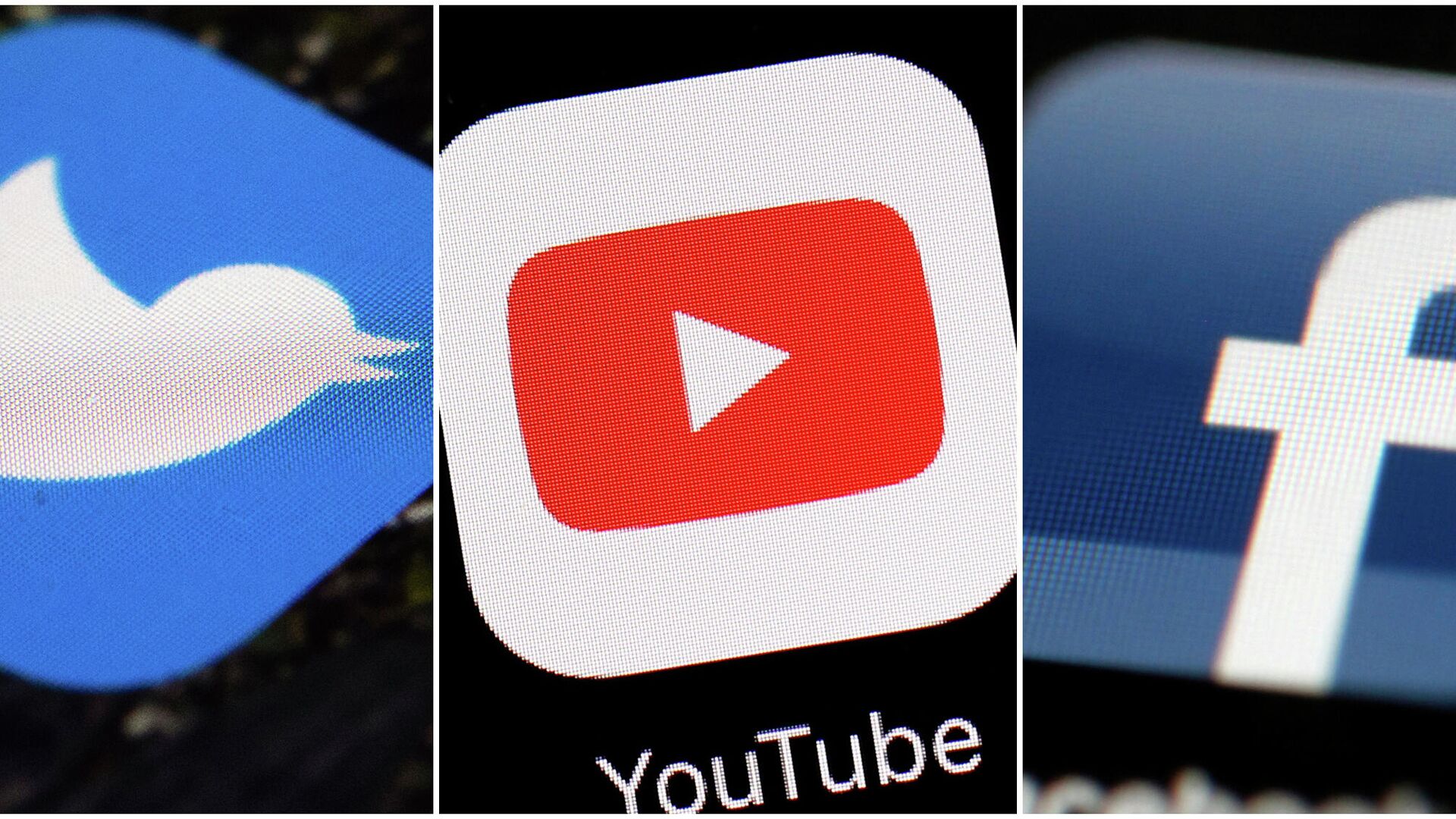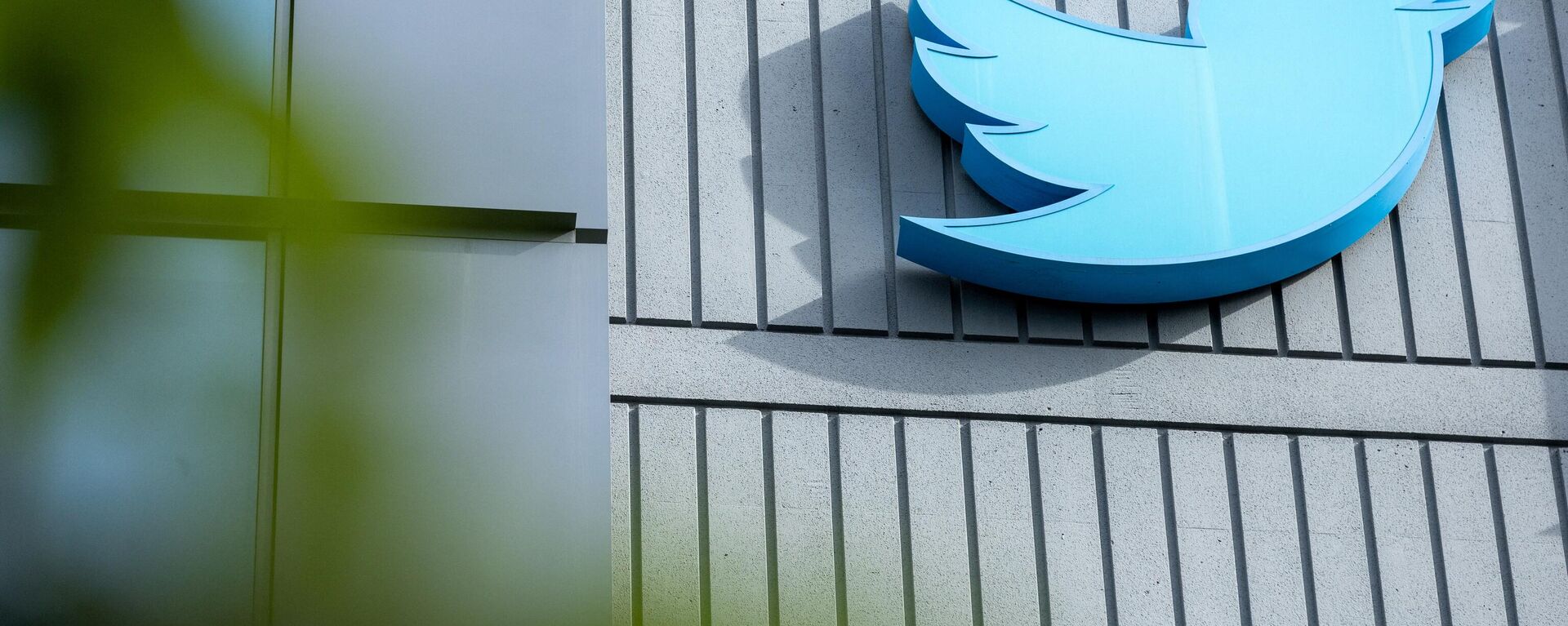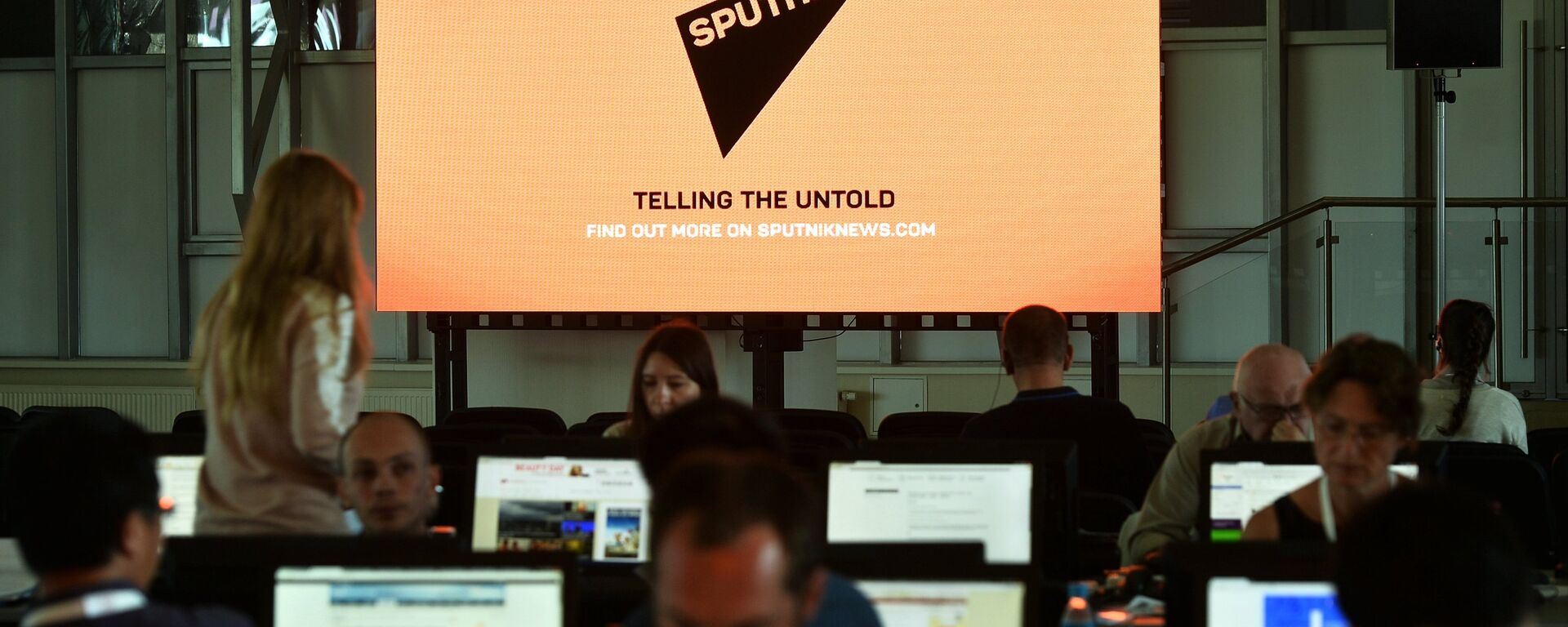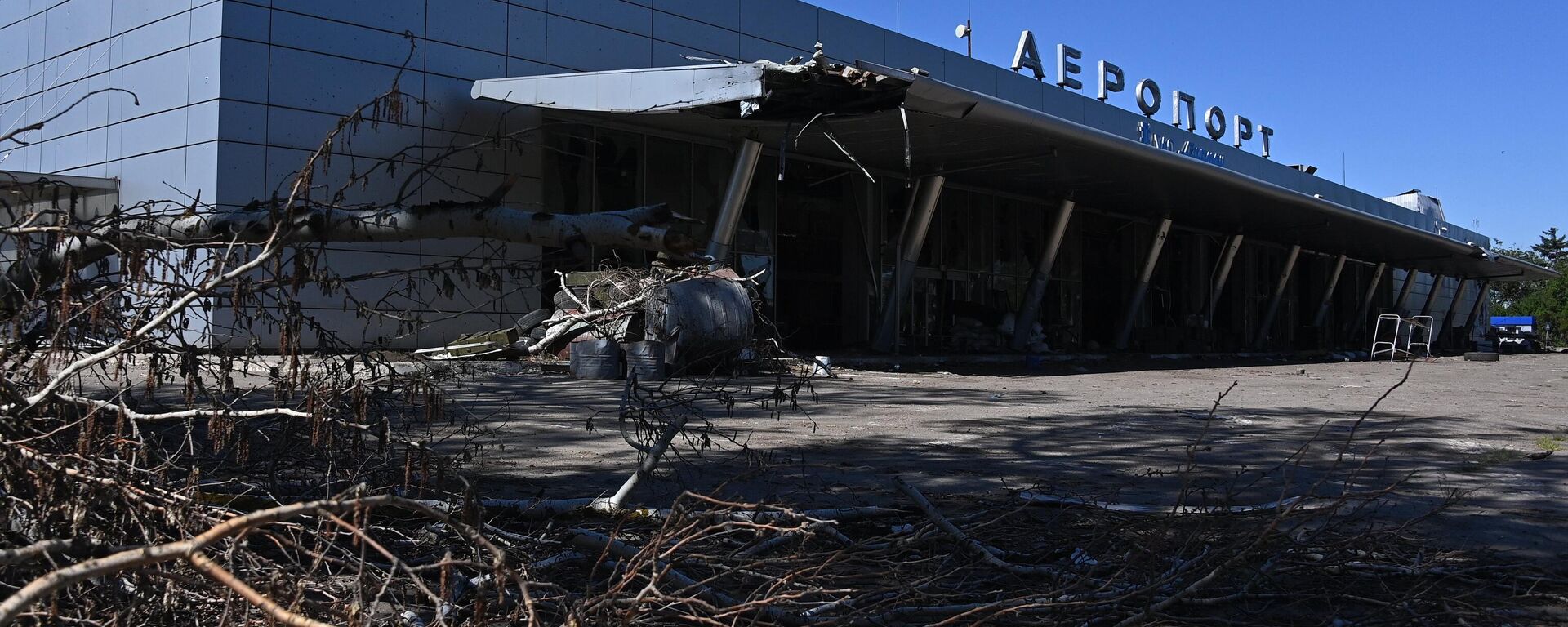https://sputnikglobe.com/20230825/whats-behind-eus-censorship-of-social-media--research-engines-1112894305.html
What's Behind EU's Censorship of Social Media & Search Engines?
What's Behind EU's Censorship of Social Media & Search Engines?
Sputnik International
The European Commission (EC) has stepped up pressure on online platforms under the pretext of creating "a safer digital space" free from "disinformation." Does the EC consider itself a gatekeeper of truth?
2023-08-25T18:46+0000
2023-08-25T18:46+0000
2023-08-25T18:49+0000
europe
beyond politics
stepan bandera
patrick breyer
volodymyr zelensky
ukraine
russia
kiev
european union (eu)
european commission
https://cdn1.img.sputnikglobe.com/img/07e6/01/0d/1092242790_207:0:2223:1134_1920x0_80_0_0_99de4f9517de8fbfc78c7b78cfb3c0dd.jpg
European bureaucrats are pushing ahead with EU Digital Services Act (DSA) regulations with the proclaimed aim of creating "a safer and more accountable online environment" in which the "fundamental rights of users" will be protected. In fact, the new legislation has made the European Commission a supervisor of the Old Continent's media sphere.Sputnik has looked into how the EC is going to shield Europeans from undesired information.What is the EU Digital Services Act?Having been swiftly passed by the European Parliament after the first reading in July 2022, the Digital Services Act (DSA) was signed into law and came into effect in November 2022.Bend the Knee or Get BannedUnder new rules, digital platforms are obligated to "limit the spread of illegal content and illegal products online"; "increase the protection of minors"; and "give users more choice and better information."Since the DSA entered into law in the EU, online platforms and search engines have been required to improve accountability and oversight by, for example, introducing a new flagging mechanism for what the authors of the law deem "illegal content."A special regime has been envisaged for platforms with more than 45 million users that includes annual assessments of the risks for online harms on their services, most notably with regard to their efforts to curtail "the dissemination of disinformation."Starting from November 2022, online platforms were given three months to report the number of active end users on their websites. To date, the rules have been introduced for 19 of the world's largest platforms. From mid-February 2024, the regulations will apply to other online platforms, regardless of size.Firms breaching the DSA will face a fine equating to 6% of global turnover. Those who continue to break the EU's new digital rules may be prohibited from operating in Europe.What 'Supervisory Powers' Has the European Commission Obtained?According to the new rules, the European Commission has powers to directly supervise Very Large Online Platforms (VLOPs) – such as Alibaba AliExpress, Amazon Store, Apple App Store, Facebook, Google Play, etc. – and Very Large Online Search Engines (VLOSEs) which individually reach more than 10% of the EU population, or around 45 million people.In addition, each EU member state has to designate a "digital services coordinator" to supervise various entities, including VLOPs and VLOSEs in scope of the DSA for non-systemic issues. The law stipulates that national coordinators should cooperate with the European Commission through a European Board of Digital Services.The EC has also established a European Center for Algorithmic Transparency (ECAT) to bolster its supervisory role. The ECAT will look into how algorithmic systems shape the visibility and promotion of content, and its societal and ethical impact.How EU is Tightening Screws on Big TechFrom August 25, the DSA has imposed new rules on content moderation, user privacy, and transparency for Internet giants, including Meta's* Facebook* and Instagram* platforms, Apple's online App Store, and some Google services. The regulations in question include further banning harmful content from spreading, thwarting user-targeting practices, as well as sharing certain internal data with EC regulators.Over the past several months, the EC has conducted DSA "stress tests" for 19 online giants. The major aim of these "stress tests" was to find out whether these Big Tech platforms could "detect, address and mitigate systemic risks, such as disinformation," a commission member said, as quoted by the Western mainstream press.Having conducted the compliance tests, the commission concluded that Facebook, Instagram, X (formerly known as Twitter), TikTok, and Snapchat should do more to prepare for the DSA.What's Really Behind EC's Fight Against 'Disinformation'?The DSA's timing suggests that the EU's "disinformation crusade" is related to the Russian special operation in Ukraine, which started on February 24, 2022. A June 2022 article by Patrick Breyer, a center-left Pirate Party Germany politician and member of the European Parliament (MEP), seems to confirm this assumption.The politician claimed that "disinformation" is Russia's "powerful weapon," insisting that the EU’s Digital Services Act "could play an important role in the fight" against it."In the battle against disinformation, it could be tempting to put the responsibility entirely in the hands of the tech companies," the politician continued, adding that Big Tech is "already policing some of what people are posting on their social networks." In fact, what Breyer is advocating is the control of the EU, a supranational body consisting of unelected officials, over what is being shared online.A glaring example of the EU's fight against "disinformation" is the bloc's outright censorship of Russian media and banning of individual media channels of Russian bloggers.In early March 2022, the EU banned Sputnik, RT, and their subsidiaries. Simultaneously, Meta*, Twitter (X), and other tech giants suspended Sputnik and RT's accounts and content on their platforms across the EU. The ban was met with condemnation from members of the European Federation of Journalists and the Dutch Association of Journalists (NVJ)."It is inexcusable that we condemn the suppression of freedom of expression everywhere in the world but fail to defend the values that we ourselves promote," echoed Andy Vermaut, a Belgian human rights activist from the International Alliance for the Defense of Rights and Liberties (AIDL), at the time.According to them, the EU deprived Europeans of alternative viewpoints on the Ukraine conflict, making Brussels a de facto gatekeeper of "truth." While describing the Ukraine conflict, the European media called Russia's special military operation an "unprovoked invasion," while silencing the gruesome reality of the Kiev regime's eight-year-long war against the breakaway Donbass republics and neo-Nazi torture chambers in eastern Ukraine.Why is EU Tightening Control Over the Media?Apparently, the EU's recent attempts to stiffen control of social media and platforms stem from the fact that the West's Ukraine narrative is bursting at the seams.Over the past year and a half, it turned out that the Ukrainian military has repeatedly violated the Geneva Convention by torturing, killing, and mutilating Russian POWs. The Western media then grudgingly admitted that Ukrainian nationalist militants hold Nazis and WW2 Nazi collaborators Stepan Bandera and Roman Shukhevich in high regard.In June, the UN Human Rights Office (OHCHR) announced that it had documented at least "91 cases of enforced disappearances and arbitrary detentions (79 men, 12 women) committed by Ukrainian armed forces and law enforcement agencies," as well as the arbitrary detention of 88 Russian civilian sailors, one of whom died from a chronic condition due to the lack of adequate medical care. The international entity also raised concerns about the overall fairness of proceedings during the prosecution of war crimes in Ukraine. Actually, the reality is even uglier judging from first-hand witness accounts of civilians who fell prey to the Ukrainian "injustice machine."Meanwhile, information about swirling corruption within the high ranks of the Ukrainian military and politicians as well as weapons smuggling instances has also found its way to the Western press. For its part, the so-called Pentagon leaks shed light on Ukrainian President Volodymyr Zelensky's "aggressive instincts that sharply contrast with his public-facing image as the calm and stoic statesman," as one US mainstream newspaper remarked.In addition to these inconvenient truths, the failure of the Ukrainian counteroffensive busted the myth of Kiev's imminent victory promoted by Western officials and their subservient media since the outset of the Russian special military operation.As the truth comes out, it's apparently becoming hard to convince European citizens about the necessity to spend more funds on NATO's proxy war in Ukraine while the Old Continent is suffering from inflation, deindustrialization, energy uncertainty, and plummeting living standards.Despite the European Commission's efforts to establish Orwellian-style full control of information in the media, search engines, and online platforms, truth remains an unstoppable force.*Meta's Facebook and Instagram are banned in Russia for extremism.
https://sputnikglobe.com/20221102/disinformation-crusaders-how-big-tech-became-us-blobs-executioner-of-free-speech-1102998030.html
https://sputnikglobe.com/20211108/facebook-leadership-chooses-not-to-make-platform-safer-to-maximize-profits-whistleblower-says-1090573550.html
https://sputnikglobe.com/20230825/eus-stricter-regulations-for-tech-giants-to-go-into-effect-on-friday-1112874933.html
https://sputnikglobe.com/20230529/french-telecoms-minister-threatens-twitter-with-ban-in-eu-under-disinformation-law-1110770966.html
https://sputnikglobe.com/20220525/rt--sputnik-ban-eu-turned-into-nato-branch-limits-publics-access-to-information-activists-say-1095772379.html
https://sputnikglobe.com/20230721/the-truth-about-ukrainian-war-crimes-against-donbass-civilians-1112031958.html
https://sputnikglobe.com/20230713/blood-on-the-walls-inside-ukraines-torture-chambers-1111796712.html
https://sputnikglobe.com/20230824/whats-behind-decline-of-germany-1112852729.html
ukraine
russia
kiev
Sputnik International
feedback@sputniknews.com
+74956456601
MIA „Rosiya Segodnya“
2023
News
en_EN
Sputnik International
feedback@sputniknews.com
+74956456601
MIA „Rosiya Segodnya“
Sputnik International
feedback@sputniknews.com
+74956456601
MIA „Rosiya Segodnya“
eu digital services act (dsa), eu censorship, eu ban on russian media, war in ukraine, ukraine conflict, russian disinformation, facebook, twitter, google, eu restrictions tech giants, what is digital services act (dsa), eu suppression of information ukraine, digital services act regulations, digital services act text, digital services act summary
eu digital services act (dsa), eu censorship, eu ban on russian media, war in ukraine, ukraine conflict, russian disinformation, facebook, twitter, google, eu restrictions tech giants, what is digital services act (dsa), eu suppression of information ukraine, digital services act regulations, digital services act text, digital services act summary
European bureaucrats are pushing ahead with EU Digital Services Act (DSA) regulations with the proclaimed aim of creating "a safer and more accountable online environment" in which the "fundamental rights of users" will be protected. In fact, the new legislation has made the European Commission a supervisor of the Old Continent's media sphere.
Sputnik has looked into how the EC is going to shield Europeans from undesired information.
What is the EU Digital Services Act?
Having been swiftly passed by the European Parliament after the first reading in July 2022, the Digital Services Act (DSA) was signed into law and came into effect in November 2022.
"The DSA applies to all digital services that connect consumers to goods, services, or content," the European Commission's website reads. "It creates comprehensive new obligations for online platforms to reduce harms and counter risks online, introduces strong protections for users' rights online, and places digital platforms under a unique new transparency and accountability framework."
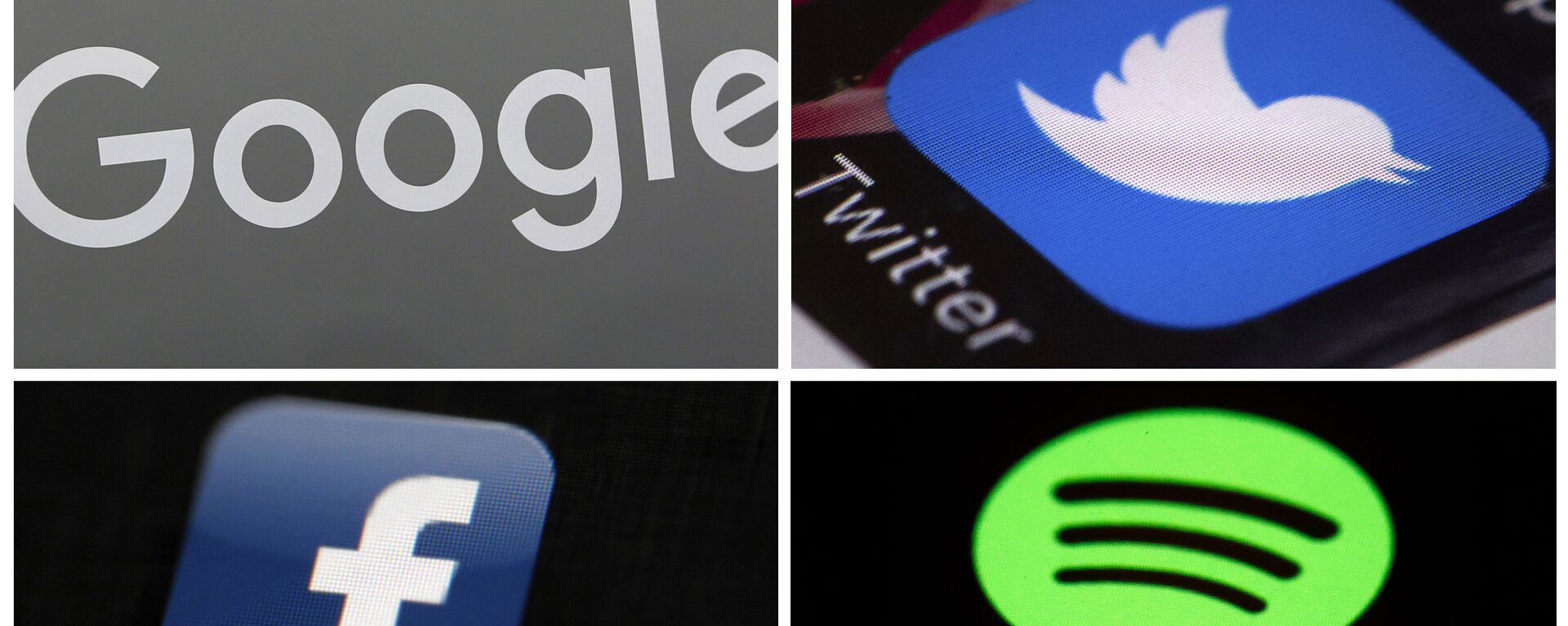
2 November 2022, 15:06 GMT
Bend the Knee or Get Banned
Under new rules, digital platforms are obligated to "limit the spread of illegal content and illegal products online"; "increase the protection of minors"; and "give users more choice and better information."
Since the DSA entered into law in the EU, online platforms and search engines have been required to improve accountability and oversight by, for example, introducing a new flagging mechanism for what the authors of the law deem "illegal content."
A special regime has been envisaged for platforms with more than 45 million users that includes annual assessments of the risks for online harms on their services, most notably with regard to their efforts to curtail "the dissemination of disinformation."
Starting from November 2022, online platforms were given three months to report the number of active end users on their websites. To date, the rules have been introduced for 19 of the world's largest platforms. From mid-February 2024, the regulations will apply to other online platforms, regardless of size.
Firms breaching the DSA will face a fine equating to 6% of global turnover. Those who continue to break the EU's new digital rules may be prohibited from operating in Europe.
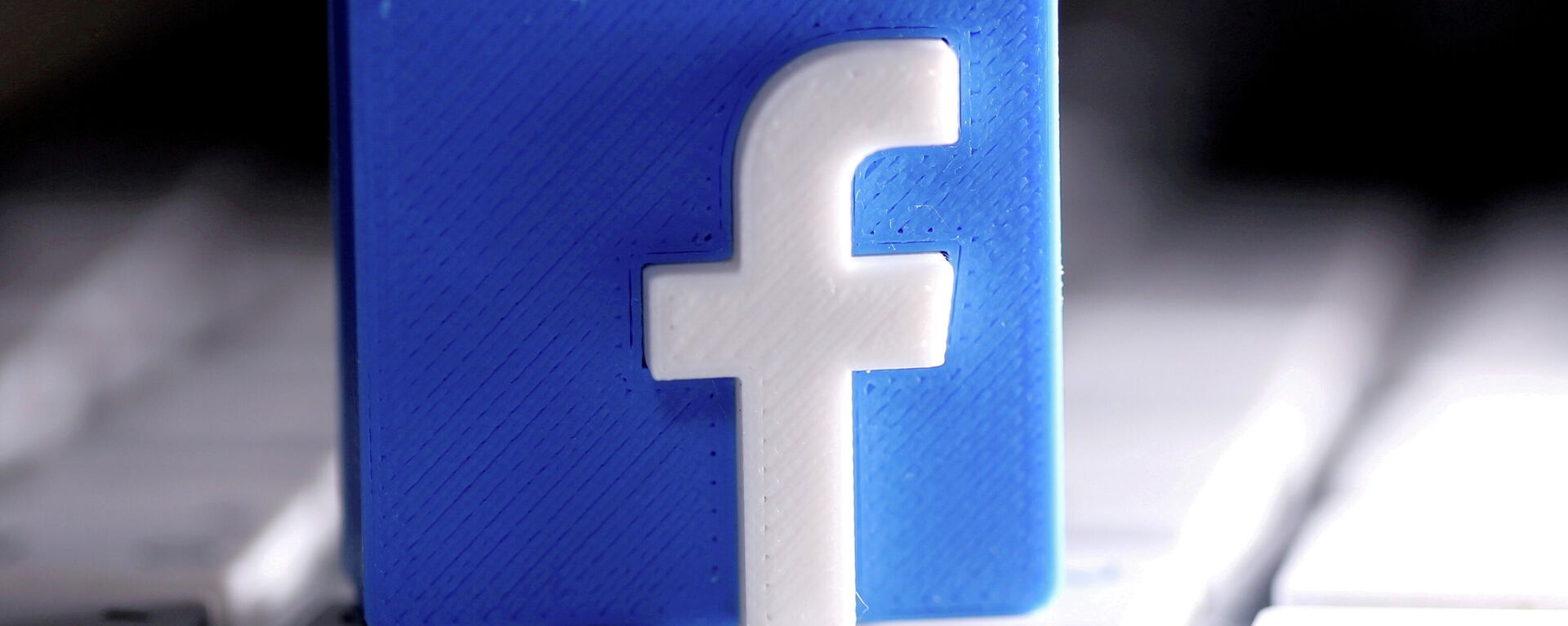
8 November 2021, 18:43 GMT
What 'Supervisory Powers' Has the European Commission Obtained?
According to the new rules, the European Commission has powers to directly supervise Very Large Online Platforms (VLOPs) – such as Alibaba AliExpress, Amazon Store, Apple App Store, Facebook, Google Play, etc. – and Very Large Online Search Engines (VLOSEs) which individually reach more than 10% of the EU population, or around 45 million people.
In addition, each EU member state has to designate a "digital services coordinator" to supervise various entities, including VLOPs and VLOSEs in scope of the DSA for non-systemic issues. The law stipulates that national coordinators should cooperate with the European Commission through a European Board of Digital Services.
The EC has also established a European Center for Algorithmic Transparency (ECAT) to bolster its supervisory role. The ECAT will look into how algorithmic systems shape the visibility and promotion of content, and its societal and ethical impact.
"Scientists and experts working at the ECAT will cooperate with industry representatives, academia, and civil society organizations to improve our understanding of how algorithms work: they will analyze transparency, assess risks, and propose new transparent approaches and best practices," the ECAT's official website reads.
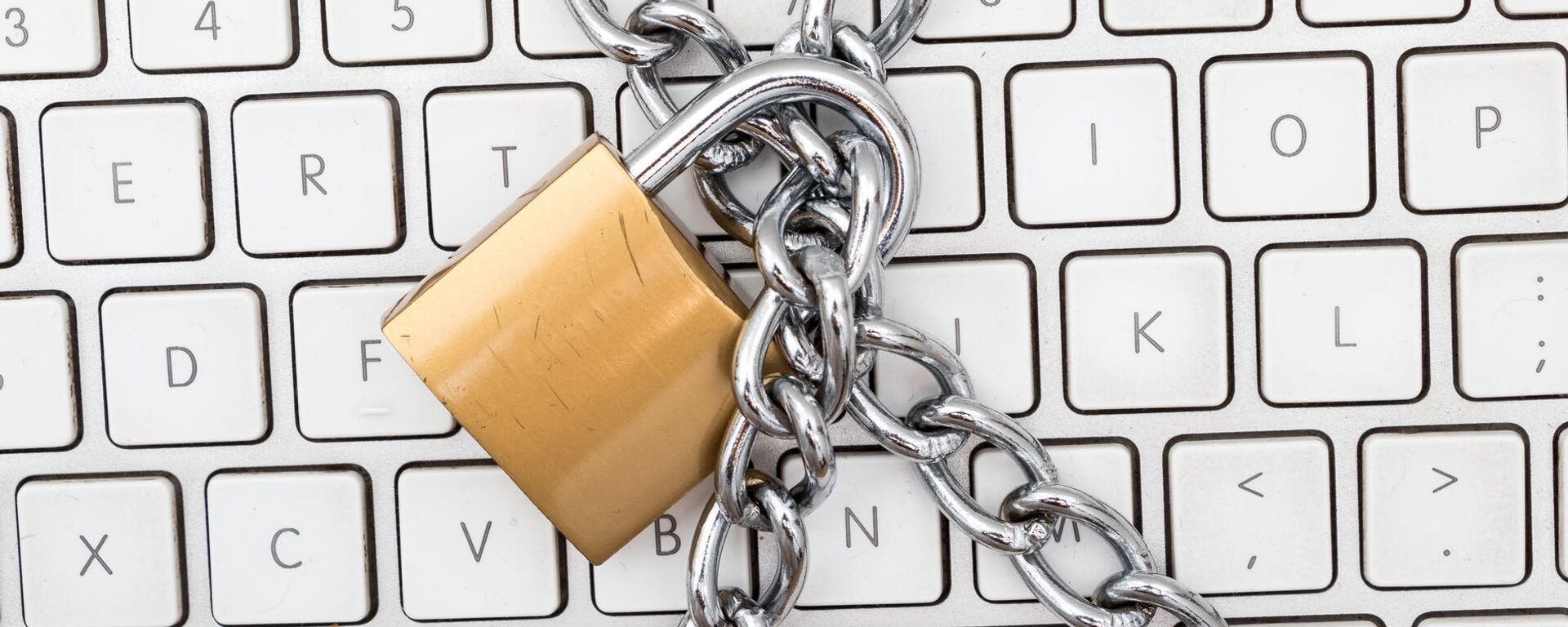
25 August 2023, 05:31 GMT
How EU is Tightening Screws on Big Tech
From August 25, the DSA has imposed new rules on content moderation, user privacy, and transparency for Internet giants, including Meta's* Facebook* and Instagram* platforms, Apple's online App Store, and some Google services. The regulations in question include further banning harmful content from spreading, thwarting user-targeting practices, as well as sharing certain internal data with EC regulators.
Over the past several months, the EC has conducted DSA "stress tests" for 19 online giants. The major aim of these "stress tests" was to find out whether these Big Tech platforms could "detect, address and mitigate systemic risks, such as disinformation," a commission member said, as quoted by the Western mainstream press.
Having conducted the compliance tests, the commission concluded that Facebook, Instagram, X (formerly known as Twitter), TikTok, and Snapchat should do more to prepare for the DSA.
What's Really Behind EC's Fight Against 'Disinformation'?
The DSA's timing suggests that the EU's "disinformation crusade" is related to the Russian special operation in Ukraine, which started on February 24, 2022. A June 2022 article by Patrick Breyer, a center-left Pirate Party Germany politician and member of the European Parliament (MEP), seems to confirm this assumption.
The politician claimed that "disinformation" is Russia's "powerful weapon," insisting that the EU’s Digital Services Act "could play an important role in the fight" against it.
"In the battle against disinformation, it could be tempting to put the responsibility entirely in the hands of the tech companies," the politician continued, adding that Big Tech is "already policing some of what people are posting on their social networks."
However, per Breyer, neither tech giant CEOs, nor national governments could do the job properly. The former manipulate and sometimes violate their own rules (as Big Tech whistleblowers have previously disclosed), while the latter's interference may pose a "threat" to democracy, he argued. "This has proven the urgency for the EU to step in and regulate online platforms and their algorithms," concluded the politician, touting the DSA.
In fact, what Breyer is advocating is the control of the EU, a supranational body consisting of unelected officials, over what is being shared online.
A glaring example of the EU's fight against "disinformation" is the bloc's outright censorship of Russian media and banning of individual media channels of Russian bloggers.
In early March 2022, the EU banned Sputnik, RT, and their subsidiaries. Simultaneously, Meta*, Twitter (X), and other tech giants suspended Sputnik and RT's accounts and content on their platforms across the EU. The ban was met with condemnation from members of the European Federation of Journalists and the Dutch Association of Journalists (NVJ).
"[I] would like to see even more human rights organizations take a strong stand in favor of freedom of information and challenge the EU’s ban on RT and Sputnik," Taylor Hudak, journalist and editor at AcTVism Munich, told Sputnik in May 2022. "The public is not free and informed if entities like the EU ban news organizations it does not like simply because those organizations provide a different perspective."
"It is inexcusable that we condemn the suppression of freedom of expression everywhere in the world but fail to defend the values that we ourselves promote," echoed Andy Vermaut, a Belgian human rights activist from the International Alliance for the Defense of Rights and Liberties (AIDL), at the time.
According to them, the EU deprived Europeans of alternative viewpoints on the Ukraine conflict, making Brussels a de facto gatekeeper of "truth." While describing the Ukraine conflict, the European media called Russia's special military operation an "unprovoked invasion," while silencing the gruesome reality of the Kiev regime's eight-year-long war against the breakaway Donbass republics and
neo-Nazi torture chambers in eastern Ukraine.
Why is EU Tightening Control Over the Media?
Apparently, the EU's recent attempts to stiffen control of social media and platforms stem from the fact that the West's Ukraine narrative is bursting at the seams.
Over the past year and a half, it turned out that the Ukrainian military has repeatedly violated the Geneva Convention by torturing, killing, and mutilating
Russian POWs. The Western media then grudgingly admitted that Ukrainian nationalist militants
hold Nazis and WW2 Nazi collaborators Stepan Bandera and Roman Shukhevich in high regard.
In June, the
UN Human Rights Office (OHCHR) announced that it had documented at least
"91 cases of enforced disappearances and arbitrary detentions (79 men, 12 women) committed by Ukrainian armed forces and law enforcement agencies," as well as the arbitrary detention of 88 Russian civilian sailors, one of whom died from a chronic condition due to the lack of adequate medical care.
The international entity also raised concerns about the overall fairness of proceedings during the prosecution of war crimes in Ukraine. Actually, the reality is even uglier judging from
first-hand witness accounts of civilians who fell prey to the Ukrainian "injustice machine."
Meanwhile, information about
swirling corruption within the high ranks of the Ukrainian military and politicians as well as
weapons smuggling instances has also found its way to the Western press. For its part, the so-called
Pentagon leaks shed light on
Ukrainian President Volodymyr Zelensky's "aggressive instincts that sharply contrast with his public-facing image as the calm and stoic statesman," as one US mainstream newspaper remarked.
In addition to these inconvenient truths,
the failure of the Ukrainian counteroffensive busted the myth of Kiev's imminent victory promoted by Western officials and their subservient media since the outset of the Russian special military operation.
As the truth comes out, it's apparently becoming hard to convince European citizens about the necessity to spend more funds on NATO's proxy war in Ukraine while the Old Continent is suffering from inflation, deindustrialization, energy uncertainty, and plummeting living standards.
Despite the European Commission's efforts to establish Orwellian-style full control of information in the media, search engines, and online platforms, truth remains an unstoppable force.
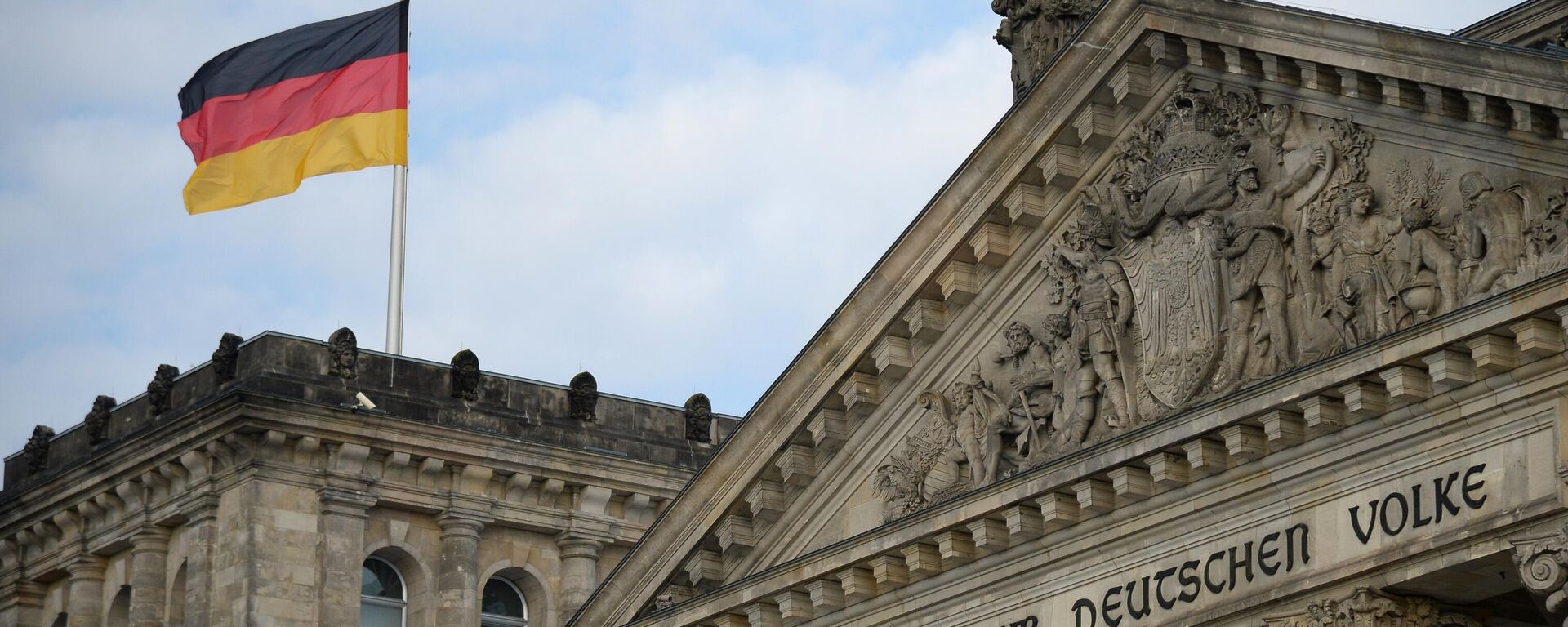
24 August 2023, 14:02 GMT
*Meta's Facebook and Instagram are banned in Russia for extremism.
